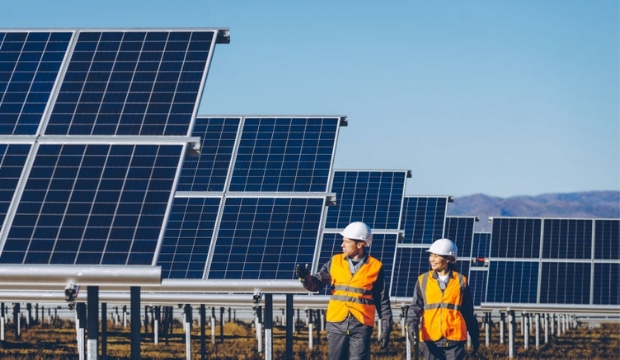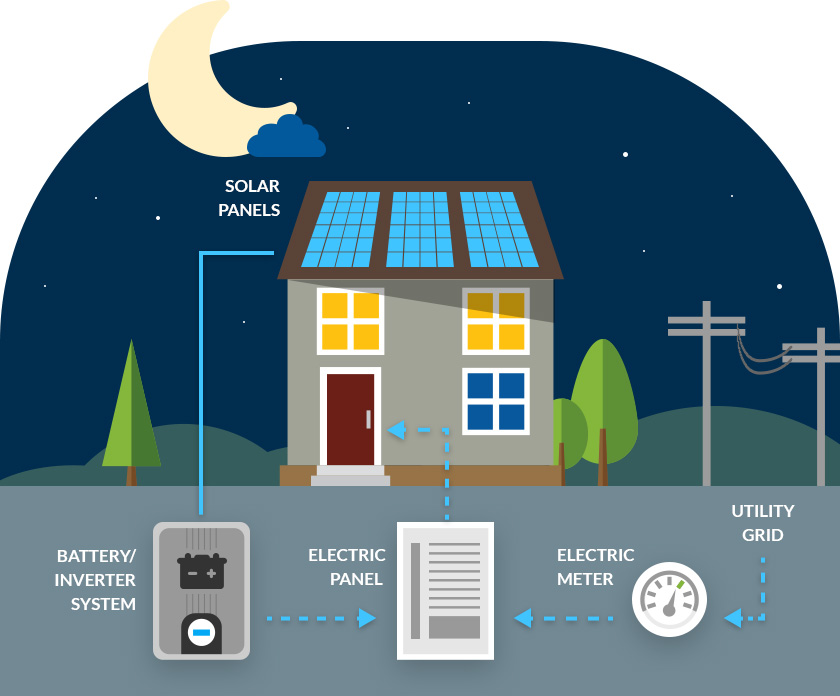Residential Solar Panels Virginia - An Overview
Residential Solar Panels Virginia - An Overview
Blog Article
Tesla Solar Installer Virginia: Lumina Solar Concentrates On Offering Advanced Photovoltaic Solutions For Residences And Businesses
History and Founding
Have you ever questioned how a photovoltaic panel business springs from a simple stimulate of inspiration into a powerhouse of renewable resource? It typically starts with a vision-- one fueled by a blend of development, decision, and a pinch of serendipity. The journey of many solar companies mirrors the evolution of the innovation itself: from large, inefficient panels to sleek, high-efficiency marvels utilizing the sun's bounty.
The Early Days
In the late 20th century, when solar energy was still a specific niche principle, pioneers planted seeds for what would become an international movement. Think of a little workshop filled with curious engineers, relentlessly explore photovoltaic cells. Their passion was palpable, typically driven by a desire to fight environment change and decrease reliance on nonrenewable fuel sources.
One such anecdote has to do with a founder who, motivated by a camping journey, understood that even in remote areas, the sun could power vital gadgets. This simple observation stimulated a business's mission to democratize access to tidy energy.
Establishing Principles

- Development: Continuously pressing the borders of solar innovation to enhance performance and sturdiness.
- Sustainability: Committing to environment-friendly production and decreasing carbon footprints.
- Availability: Making renewable energy options inexpensive and practical for daily users.
Milestones in Growth
| Year | Key Occasion |
|---|---|
| 1985 | Company established in a small garage, focusing on research study and advancement. |
| 1995 | Commercial solar panel product introduced, acquiring local attention. |
| 2005 | Expanded to worldwide markets, accepting global renewable energy objectives. |
| 2015 | Presented advanced photovoltaic panel innovation with enhanced energy conversion. |
Isn't get more info it interesting how these incremental actions, typically ignored, shape the energy landscape today? The solar panel business story is not just about technology; it's about a relentless quest for a brighter, cleaner future.

Innovations in Solar Panel Technologies
Ever seen how some photovoltaic panels gleam brighter and last longer? It's not magic; it's the science of photovoltaic effectiveness. Modern solar panel companies invest heavily in technologies like bifacial cells, which record sunlight from both sides, boosting energy harvest without expanding roof area. Have you ever wondered why some panels carry out better on cloudy days? That is because of advances in thin-film solar technology, which prospers under diffused light conditions.
Product Variations Customized to Special Requirements
One size never fits all. Solar panel service providers now provide:
- Monocrystalline panels for optimum effectiveness and sleek looks, ideal for space-constrained roofs.
- Polycrystalline panels, which provide an economical option without sacrificing excessive output.
- Building-integrated photovoltaics (BIPV), combining solar tech effortlessly into architectural components like windows and facades.
Choosing the best product isn't almost upfront expense; it's about matching your environment, energy objectives, and long-term savings. For instance, homes shaded by trees require panels that master low-light circumstances, something numerous overlook up until energy bills climb up suddenly.
Technical Tips for Optimal Choice
- Assess the temperature coefficient-- lower worths indicate panels lose less performance on hot days.
- Try to find panels with enhanced anti-reflective finishings to make the most of light absorption.
- Consider the panel's guarantee not simply for problems, however for guaranteed power output over decades.
- Do not ignore the value of the inverter technology matched with the panels; it can make or break your system's efficiency.
Beyond Panels: Emerging Patterns
Picture photovoltaic panels that change their angle immediately to go after the sun-- tracking systems are ending up being more available, increasing yield substantially. Or solar tiles that mix undetectably into your roofline, changing your home into a quiet, self-dependent power generator. These developments are improving what a photovoltaic panel business offers-- not just items, but incorporated energy services.
Market Presence and Global Operations
Ever question why some solar panel companies appear to sprout up in every corner of the world while others barely make a ripple? The difference lies not simply in technology but in mastering the art of browsing diverse markets. Broadening globally is like planting seeds in various climates-- you should understand each environment's special conditions to grow.
Take, for instance, the detailed dance of logistics and supply chain management. Delivering panels midway throughout the world isn't simply about distance; it has to do with timing, customizeds, tariffs, and adjusting to local demand variations. A business with robust international operations prepares for these variables, making sure panels show up on schedule without pumping up expenses. This insight is no small feat and often separates market leaders from fans.
Secret Methods for Expanding Market Existence
- Localized production: Developing production centers near target markets lowers shipping delays and import complexities.
- Strategic collaborations: Collaborating with local firms speeds up market penetration and constructs trust.
- Adaptive product style: Customizing photovoltaic panel tech to weather, sun intensity, and facilities subtleties enhances performance and acceptance.
What about the human factor? Solar panel companies operating worldwide must fix up cultural differences and regulative nuances without losing sight of their core mission. What works in a sun-drenched desert may fail in a damp seaside region. In some cases, the most innovative solution is simply listening-- soaking up regional insights to refine innovation and approach.
Professionals frequently advise a phased rollout rather than a shotgun expansion. Why risk overextension when determined development constructs sustainable momentum? Scaling wisely implies balancing aspiration with functional resilience - Solar Panel Company Virginia. In the race for sustainable energy dominance, persistence can be as important as speed.
Ecological Impact and Sustainability Practices
When photovoltaic panels first emerged, numerous assumed they brought no ecological baggage. Nevertheless, the truth is more nuanced. The production of photovoltaic cells includes uncommon earth metals and energy-intensive procedures, which can leave a sizable carbon footprint before the panels even reach roofs. Yet, the true ecological expense depends greatly on the sustainability practices utilized by the photovoltaic panel business throughout the lifecycle of their products.
How often do we stop briefly to consider what occurs to solar panels at the end of their helpful life? Unlike batteries or electronics, photovoltaic panels can last 25-30 years, however disposal and recycling pathways stay underdeveloped in numerous areas. A business dedicated to lowering environmental harm will have a robust strategy for recycling photovoltaic products, salvaging valuable silicon, glass, and metals to prevent landfill build-up.
Key Sustainability Strategies
- Making use of low-impact manufacturing methods that decrease water and energy consumption.
- Carrying out closed-loop systems to recycle production waste back into new panels.
- Engaging in transparent supply chain audits to make sure ethical sourcing of raw materials.
- Designing panels for easier disassembly to help future recycling efforts.
It's worth keeping in mind that some solar business have pioneered ingenious approaches, such as incorporating eco-friendly parts or utilizing less hazardous chemicals throughout fabrication. This not just decreases environmental strain but also sets a precedent for the market. The concern remains: can the solar industry genuinely pivot towards a circular economy model without sacrificing performance or price?
Professional Tips for Examining Sustainability
- Inquire about the company's commitment to carbon-neutral production and whether they offset emissions.
- Investigate if they partner with licensed recycling centers committed to solar panel waste.
- Search for openness reports detailing ecological effects and sustainability objectives.
- Consider the durability and service warranty of panels as an indirect step of resource efficiency.
In the end, selecting solar power ought to mean more than simply slashing electrical energy expenses; it has to do with nurturing a future where energy is collected properly and waste is attentively handled. Solar panel business that embrace this philosophy not just brighten homes but likewise cast a brighter light on sustainable innovation.
Report this page